11 Supplements Everyone Should Prioritize, According to a Nutrition Expert

Supplements are like the Wild Wild West of health and wellness because there is essentially no barrier of entry into the multibillion dollar market. Any average Joe can make a protein powder or capsule filled with who knows what, slap a label on it that may or may not be true and begin selling it.
With supplements, you have to check for certain factors,
- The quality and source of ingredients. Avoid synthetic vitamins such as folic acid.
- The delivery system. Avoid taking too many pills with fillers and binders, you will rarely absorb everything on the label.
- Third party testing. There are a number of organizations that do quality testing so seek out products that prioritize this practice.
Remember, the FDA does not approve these products before they are sold, so do your homework and, like most food products, avoid the companies that spend all of their money on marketing to the masses.
In no particular order, here are a number of products that I highly recommend. Remember, this is not medical advice, just personal opinions based on years of education, research and personal trial and error. Remember, these suggestions are personal opinions informed by years of study and experimentation, not medical advice.
Antioxidants

Taking an antioxidant supplement can help neutralize free radicals, reduce oxidative stress, and support overall cellular health and longevity.
- Glutathione
- Pycnogenol
Anti-Inflammatory

Chronic inflammation is the root cause of all disease, these will naturally improve blood flow and reduce inflammation systemically.
- Black Cumin Seed
- Circumin
Methylated or activated B-complex

Supplements with a vitamin B complex can help support energy production, metabolism, and overall nervous system health. Try to avoid taking only B6 or only B12.
- Methylfolate (not folic acid)
- Methylcobalamin (not cyanocobalamin)
Vitamin D3 + K2

Millions of Americans are vitamin D deficient even though our bodies make vitamin D from sunlight and cholesterol. Taking a vitamin D3 + K2 supplement can help support bone health, cardiovascular health, and immune function, vitamin K helps transport vitamin D.
Related: 15 Quick Ways to Lose Body Fat Percentage in a Week
Magnesium

Taking a magnesium supplement can help support muscle function, nerve function, heart health, and overall relaxation or sleep.
Digestion aids
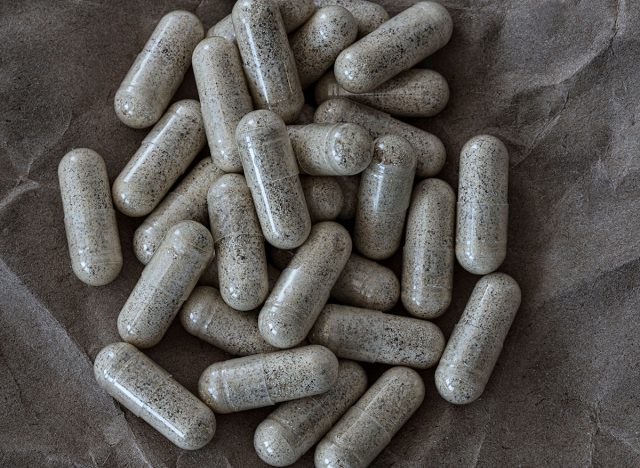
Probiotics help maintain a healthy balance of nuevo es in our gut and digestive enzymes help us break our food down so we can extract more nutrients and avoid bloating, indigestion, etc.
- Probiotics
- Digestive enzymes
Omega 3 Fatty Acids
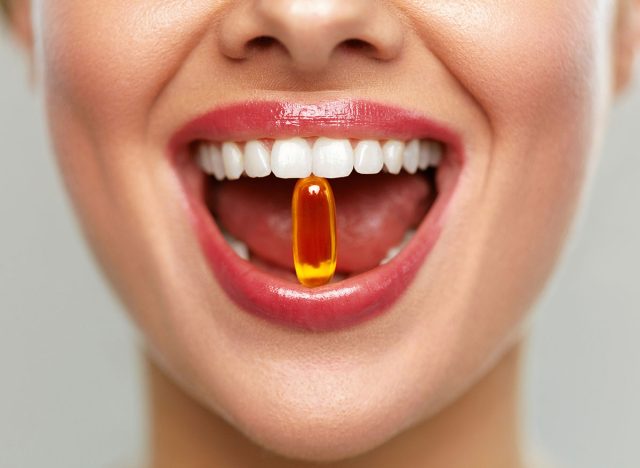
Inflammation, mental clarity and improved heart health are just some of the benefits of supplementing with an omega-3 fatty acid.
Algae
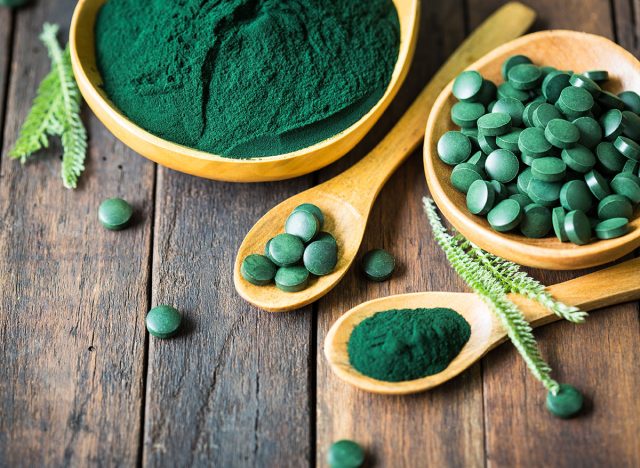
Recognized by NASA and the WHO as the worlds most nutrient dense food.
- Spirulina
- Chlorella
Amino acids
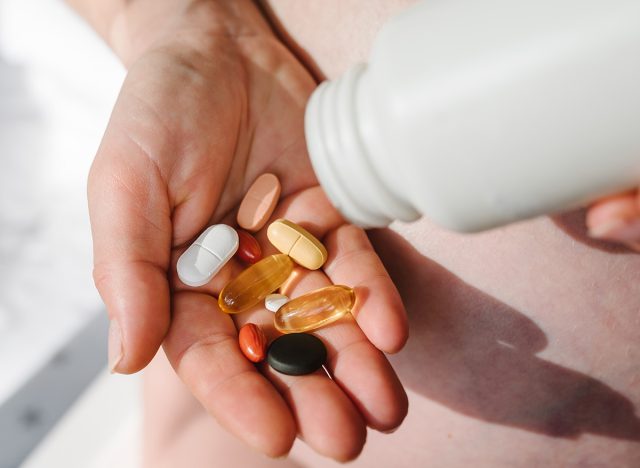
Not branch chain, but a full spectrum of essential amino acids which are the building blocks for proteins to help build and maintain muscle mass.
Creatine
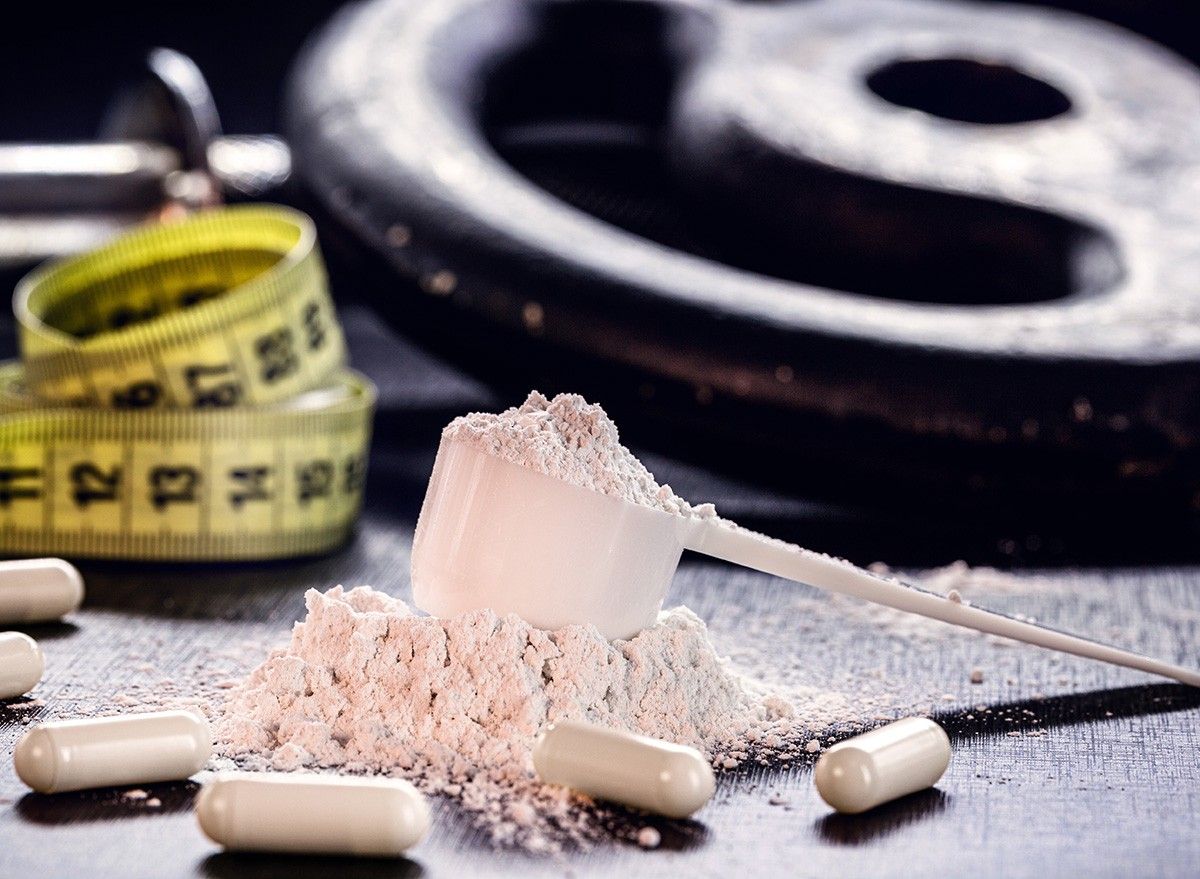
Can sometimes overlap with full spectrum amino acids.
Electrolytes

Adding electrolytes to your water help maintain proper hydration, support muscle function, and replenish essential minerals lost during exercise or dehydration.
Related: 5 Simple Ab Exercises to Lower Your Belly Pooch
A List of Supplements I Personally Take

I was fortunate enough to complete my masters in nutrition capstone project, graduation paper, on the most studied antioxidant supplement, pycnogenol. I take a form called Isotonix OPC-3 that helps combat free radicals in the body which cause oxidative stress, aka aging, everyone's least favorite topic.I like to attack health and wellness with the perspective that we can reduce the speed at which we age by optimizing our human biology through exercise, meditation, grounding, supplementation, proper oral and sleep hygiene, and great eating habits. With that being said we are all different and have to approach each of those topics differently and intentionally based on our own personal genetics, preferences, symptoms, goals and lifestyle. This holds very true with supplements, we can optimize our genetics daily and utilize products like circumin or black cumin seed, instead of a pharmaceutical NSAID, to combat acute inflammation.
Here is the list of daily supplements I take and things I cycle in when necessary. I try to stack a lot of the above by choosing products that have more than one.
- Isotonix anti-aging packets
- Vitamin D3 + K2
- Vitamin B-complex
- and so many more beneficial things
- Energybits Vitality Bits algae
- Isotonix OPC-3
- Tower+ Pure Whey Protein Isolate + Creatine or Four Sigmatic Vanilla Plant Based Protein
- Isotonix Turn Down Packets
- Viome Personalized Probiotics
- Thymenol
- VivoQuin
- GlutaQ
- Nutrametrix Daily Greens
- Prime Horny Goat Weed
Conclusion From the Expert

In conclusion, navigating the world of supplements can be complicated and overwhelming due to the lack of stringent regulations. It is imperative to scrutinize factors such as ingredient quality, delivery systems, and third-party testing when selecting supplements. With the absence of FDA approval pre-sale, educating yourself becomes essential. Personal genetics and goals play a pivotal role in supplementing with a purpose in order to optimize your well-being. Remember they are meant to complement a balanced routine, not fix broken habits. While the list of recommended supplements varies for each individual, the amount of vitamins and minerals circulating in our system at any given time is what determines our mood, energy and performance, so let's learn to control and manipulate those in the most positive way.
💪🔥Body Booster: Take a magnesium supplement to promote better sleep and reduce muscle cramps. It also supports a healthy heart.
Dillan Foss is a Board Certified and Licensed Athletic Trainer, and the founder of Limitless Theory, a wellness concierge business rooted in the integrative benefits of sports medicine and dietary and lifestyle interventions.




